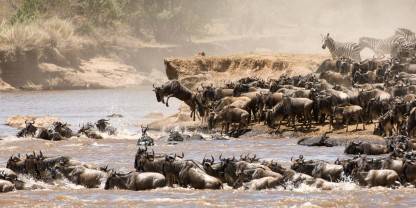Average User Rating
Rating Breakdown
Write a User Review US
Visited:
January 2019
Reviewed: Feb 6, 2019
US
Visited:
January 2019
Reviewed: Feb 6, 2019
Email Jonathan Powell | 20-35 years of age | Experience level: first safari
 DE
Visited:
January 2019
Reviewed: Jan 29, 2019
DE
Visited:
January 2019
Reviewed: Jan 29, 2019
Email Susanne Maurer-Widdecke | 50-65 years of age | Experience level: 2-5 safaris
 GB
Visited:
February 2018
Reviewed: Jan 22, 2019
GB
Visited:
February 2018
Reviewed: Jan 22, 2019
Email Louise **** | 20-35 years of age | Experience level: first safari
 US
Visited:
December 2018
Reviewed: Jan 15, 2019
US
Visited:
December 2018
Reviewed: Jan 15, 2019
Email Bryan | 20-35 years of age | Experience level: first safari
 CA
Visited:
December 2018
Reviewed: Jan 6, 2019
CA
Visited:
December 2018
Reviewed: Jan 6, 2019
Email Stephanie Tynan | 35-50 years of age | Experience level: first safari
 SI
Visited:
November 2018
Reviewed: Dec 10, 2018
SI
Visited:
November 2018
Reviewed: Dec 10, 2018
Email Brigita Volk | 35-50 years of age | Experience level: first safari
 IT
Visited:
October 2018
Reviewed: Nov 30, 2018
IT
Visited:
October 2018
Reviewed: Nov 30, 2018
Email Marzia | 20-35 years of age | Experience level: first safari
 GB
Visited:
October 2018
Reviewed: Nov 21, 2018
GB
Visited:
October 2018
Reviewed: Nov 21, 2018
Email Jane | 50-65 years of age | Experience level: first safari
 FR
Visited:
October 2018
Reviewed: Nov 15, 2018
FR
Visited:
October 2018
Reviewed: Nov 15, 2018
Email Gerard & Kay | 65+ years of age | Experience level: first safari


